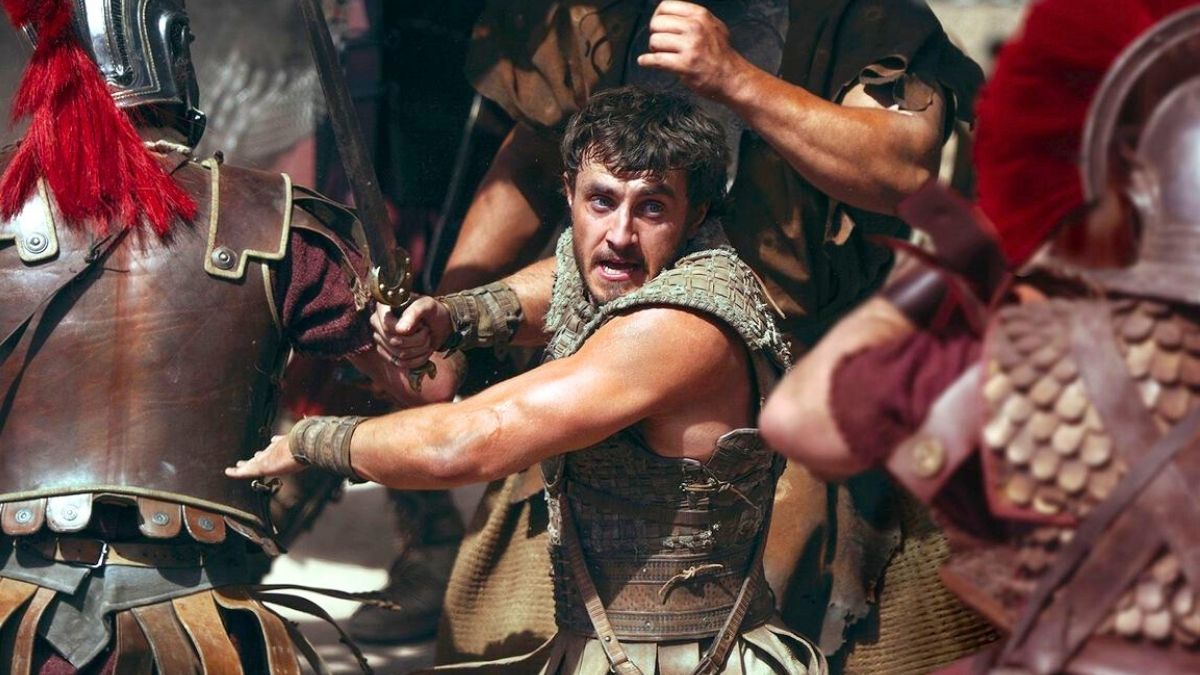
The movie uses voiceovers a lot. Oftentimes that doesn’t work well in film. Were you hesitant at all to go that direction with it?
Green: Some of my favorite movies have narrations. It can be bad, but just if it’s only exposition for the plot. But even that can be interesting. I saw that recently and was impressed. This isn’t necessarily voiceovers, he’s writing letters for the most part and then there’s bleed of subconscious stuff. But it’s not a traditional voiceover. It was just one of the millions of things with this very experimental process. It was one of the things we thought worked when we were putting it together.
I always record some sort of narration before I do the movie. Even on my last movie Joe, I just had Nicolas Cage come over to my house. Nothing was written though, same with this movie. The letters were written but anything else you hear in voiceovers wasn’t written. I’d have Cage come over and just tell me about the character, tell me about the scene. I then record all of it and have my sound guy around and we just set up mics and have the actor talk through the movie. Not necessarily ever intending to use it in the film, just for our own reference. We try to do it again at the end of the production to see how it’s changed.
He needed to be this lame poet. Manglehorn is not like reading some incredible poetry. It’s like a guy who’s a 14-year-old writing a love letter to the cute girl across the classroom. We always needed to have that naive quality to him. I thought it was important to be able to hear the content of these letters so you could see how pathetic it was that this guy was hanging onto somebody for who knows how many years. 40 years or whatever. This is how he’s trying to communicate and call to them. And you find out later that she’s not even getting them.
It seemed to me at least that it was something he was clinging to more when he had nothing else to think about. Was that a theme you were looking to explore? That loneliness.
Green: Yeah, I mean I think a lot of people cling to something once they lock off. It’s like now I’m done taking new input in that category. You see people do it all the time with religion. Now I’m 18 and this is what I believe religiously, or I’m 35 and I’m born again. Now seeing the ways of my parents, I’m going to be a democrat or a republican. People lock into these chapters.
I think Manglehorn didn’t evolve past 15 years old. He locked into this thing and won’t let the world in. He won’t play along with the world. I think that’s what the ending of the movie is trying to suggest. Just play along and see if it works. His eyes go wide because all he needed to do was play along. To me, Manglehorn is just that guy who is stuck in his ways in a world where everyone from any culture any background any age should always be evolving. Always be open to input. Always be open to positive emotion.
I’ve heard a lot of directors who also write say that they don’t feel comfortable when they didn’t write the movie, but you seem to go back and forth really well.
Green: It’s great. I always get involved, but I love it. It’s great for a couple reasons. One thing, if everybody hates the movie, you just blame that writer. But it’s cool to have a collaborator. He gets to do the heavy lifting. I always have like ten projects I’m doing at once. Right now I probably have six writers on various scripts. I can have great progress without having to sit in my own head and look at myself all day, which is too depressing. I can be making something while three scripts are being written. I’m shooting a movie and that movie’s done and I can see where the scripts are at and pick one.
With Paul Logan, the writer of this movie, I called him up the other day with another title idea and the seed of a character. Within five days he’s written a six-page treatment. To be able to have that kind of arsenal of creativity is great. Then I can look at it and say any number of things. This is not what I was thinking at all, or hey that’s not for me, you take the idea and go run with it. You just keep it very liberal with that. If people are open to that concept and aren’t so possessive and protective of their credit, it’s great.
That concludes our interview, but we’d like to thank David very much for taking the time to talk!





Published: May 7, 2015 09:50 pm